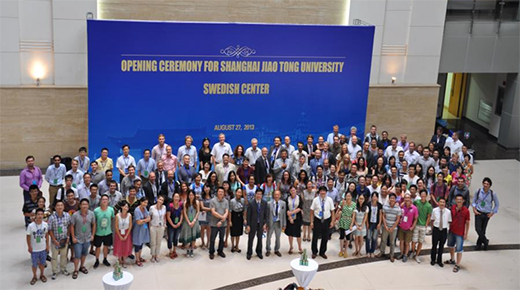Shanghai Jiao Tong University
Shanghai Jiao Tong University (SJTU) is ranked as one of China’s top universities of technology. In addition to an outstanding faculty of technology, SJTU also has a leading faculty of medicine and a prominent business school. The strategic partnership between KTH and SJTU involves everything from student exchanges to co-financing of joint research and education projects.

What's on!
Biomedical Engineering & Science 2021 KTH-SJTU Joint International Summer School
Time and Location
August 23 rd - 27 th, 2021 online
Credits
3 credits will be awarded on completion om the KTH-SJTU Joint International Summer School.
Organizers
KTH Royal Institute of Technology
Shanghai Jiao Tong University (SJTU)
Concept
SJTU-KTH Joint International Summer School is committed to maintaining an
energetic and interdisciplinary educational and lab work environment, on the basis of
biomedical engineering topics, including biomedical instrumentation nano, molecular and
regenerative medicine Imaging, computational and systems biomedicine Most of the
activities are designed to provide an adequate academic connection with well known
scholars and professors in KTH and SJTU
To Apply
Please send your CV and a letter of motivation (no more than 500 words in total) to
shangli@sjtu edu cn SJTU Applicants or ron@kth se KTH Applicants by August 1
2021
More information:
KTH-SJTU Joint Webinar
Topic: New Methods for Disease Monitoring, Prevention, Diagnosis and Treatment

History of the partnership
Collaboration between the universities was primarily established within the subjects of biomedicine, medical technology and healthcare technology. In 2011, a cooperation agreement was signed for student exchanges and double diplomas for PhD students, followed by a number of other joint initiatives within education. A large delegation from KTH visited SJTU in 2012 for a joint seminar on energy and materials science. This led to continued discussions on collaboration within various fields of technology. When SJTU’s President visited KTH in 2013, the universities’ Presidents signed an agreement to develop deeper collaboration across more operational areas in the form of a strategic partnership.
In 2016, the universities began a joint five-year initiative whereby researchers at the two universities can apply for financial support for joint research and education projects. Twenty-six projects applied for funding via this initiative when it was advertised for 2016/17, with ten projects being granted financing.
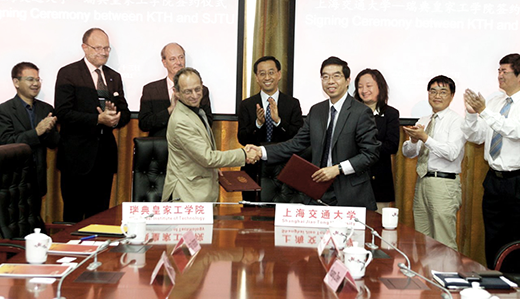
In March 2019 our academic contact for the partnership with Shanghai Jiao Tong University (SJTU), Prof Mikael Lindström, visited Shanghai Jiao Tong University. We have collaborations on master’s level with the opportunity for our students to receive a double degree KTH-SJTU. We are now exploring the opportunities to expand the cooperation to also include doctoral level with the aim of a common degree.
The stay also included a visit to an incubator lab for self-driving vehicles, with everything from industrial robots, boats and agricultural machinery, to company cars. The city of Shanghai has opened up for the opportunity for different companies of testing their algorithms in a standardised test environment.
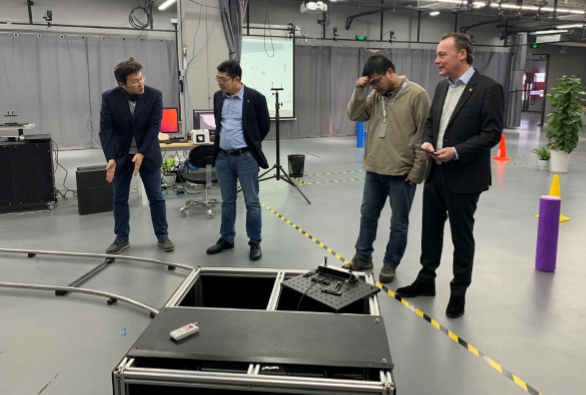
Research collaboration
Two joint research centres have been created within this partnership: JCIBRE (Joint Center for Innovation Driven Biomedical Research and Education) and JCEME (Joint Center for Energy and Materials for Energy. The centres have been responsible for initiatives including PhD schools and research collaboration. Over the course of the last eight years, KTH and SJTU have co-published a total of 338 academic articles, of which 42 had fewer than ten authors.
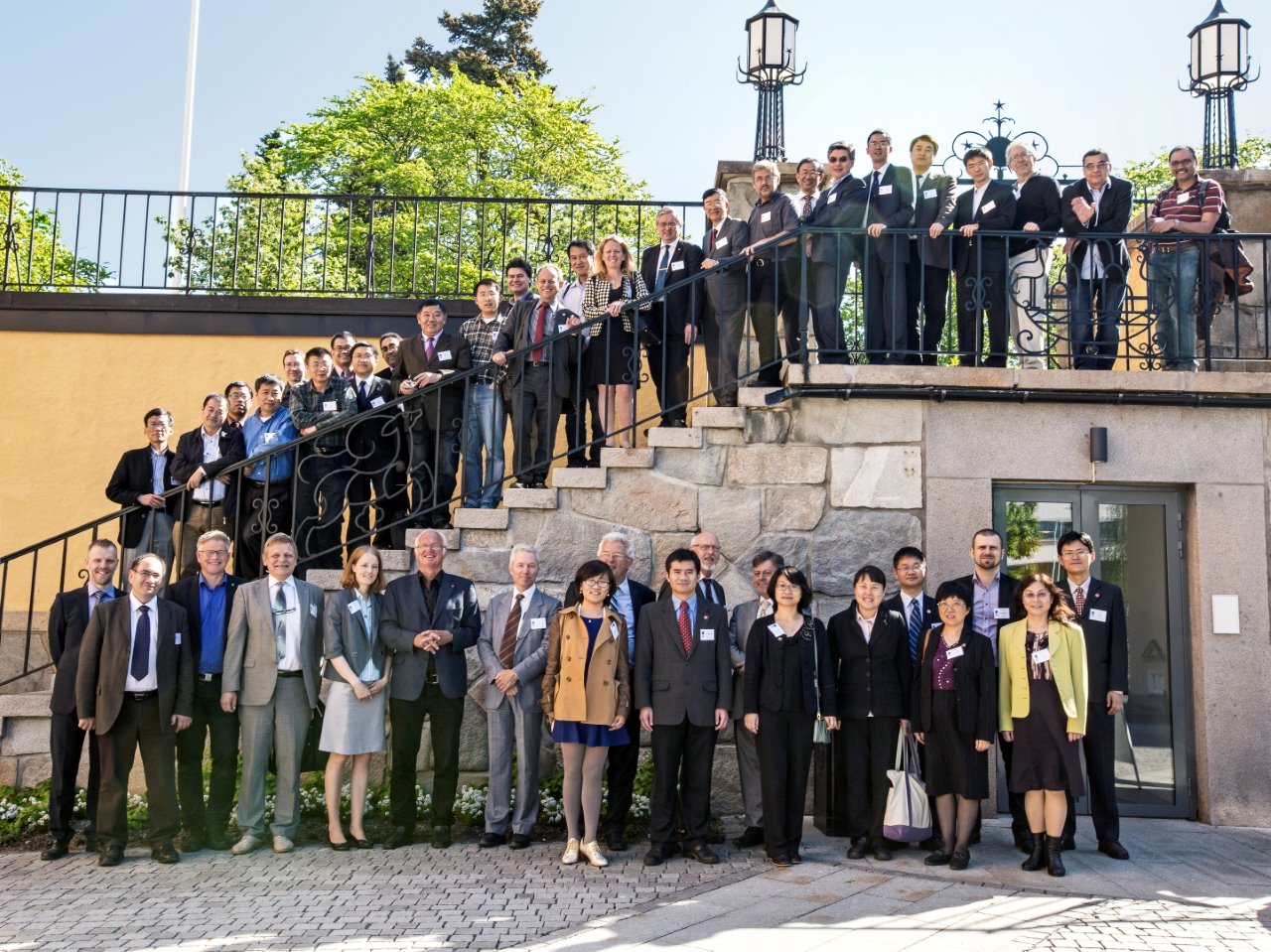
Educational collaboration
KTH and SJTU began student exchanges in 2011 with an agreement for four places for students from each university to spend a year at the other university.
Together with the University of Michigan (UM), SJTU established a joint educational environment in Shanghai in 2006, called UM-SJTU Joint Institute. In 2015, KTH signed a student exchange agreement with UM-SJTU Joint Institute on exchanges for up to four full time equivalent students. KTH also signed a student exchange agreement in 2015 with Antai College of Economics & Management at SJTU for up to two full time equivalent students. As a result, there are now student exchange agreements with SJTU for a total of up to ten full time equivalent students in each direction.
KTH cooperates with SJTU and UM-SJTU-JI in connection with student recruitment, facilitating Chinese students’ transition to studies at master’s level at KTH. There is also a double diploma agreement at master’s level in biomedical engineering and a double diploma agreement at PhD level, signed in 2012.
Within biomedical engineering, a joint PhD school has operated since 2011 with 20 to 40 participants each year, half of whom are from KTH. The PhD school contributes towards the internationalisation of PhD education, and has proven popular with participating PhD students who have had the opportunity to meet PhD students from other schools and have become familiar with subjects outside their own research fields and education. Since the beginning, the teaching location has alternated between Shanghai and Stockholm, and in 2016 the school was held for the fifth time in Shanghai. The participating schools at KTH are the School of Engineering Sciences, the School of Technology and Health, the School of Electrical Engineering and the School of Biotechnology. A new concept was introduced in 2016, whereby students will work with interdisciplinary issues. Summer schools have also been run for PhD students studying energy and materials.
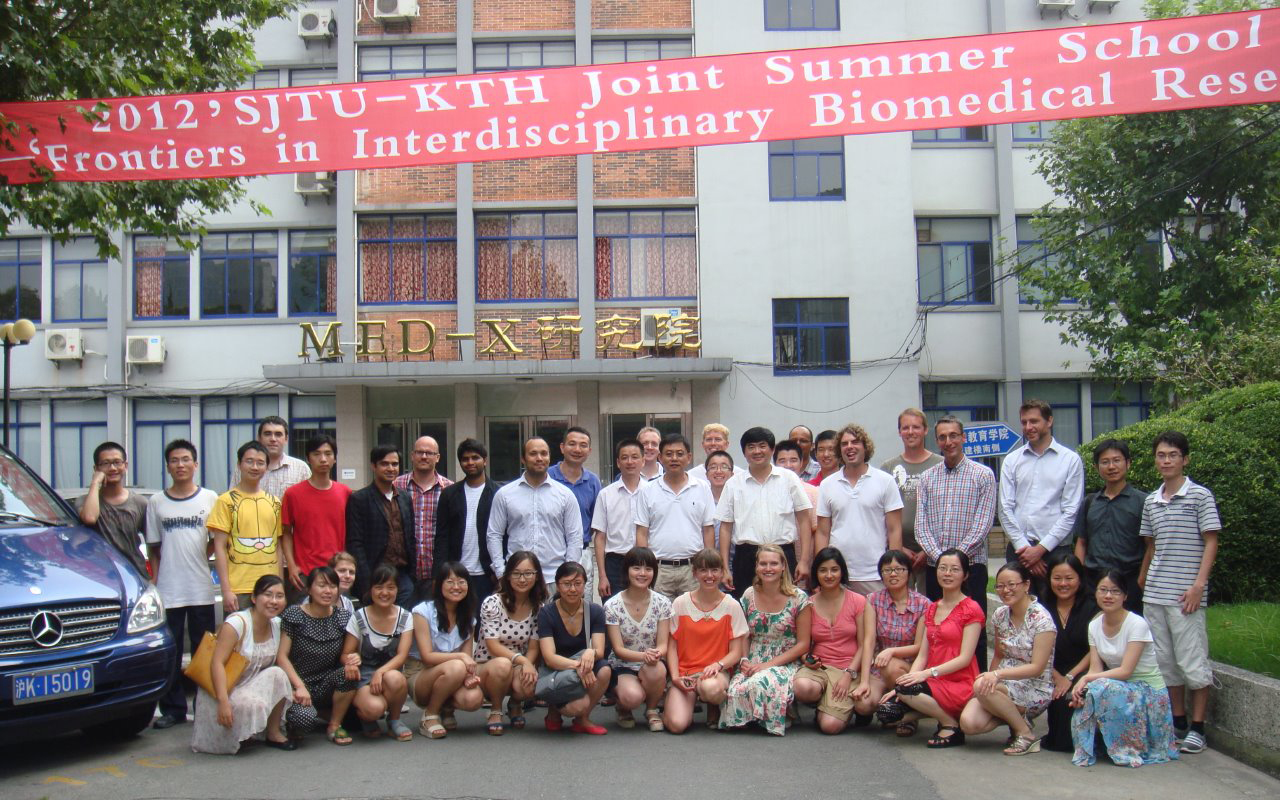
10-14th of June 2019 CBH hosted our joint summer school, which is a KTH-SJTU course. The topic is interdisciplinary biomedical research and we will have room for up to 20 students. The week was filled with interesting lectures and laboratories given by faculty from both universities.
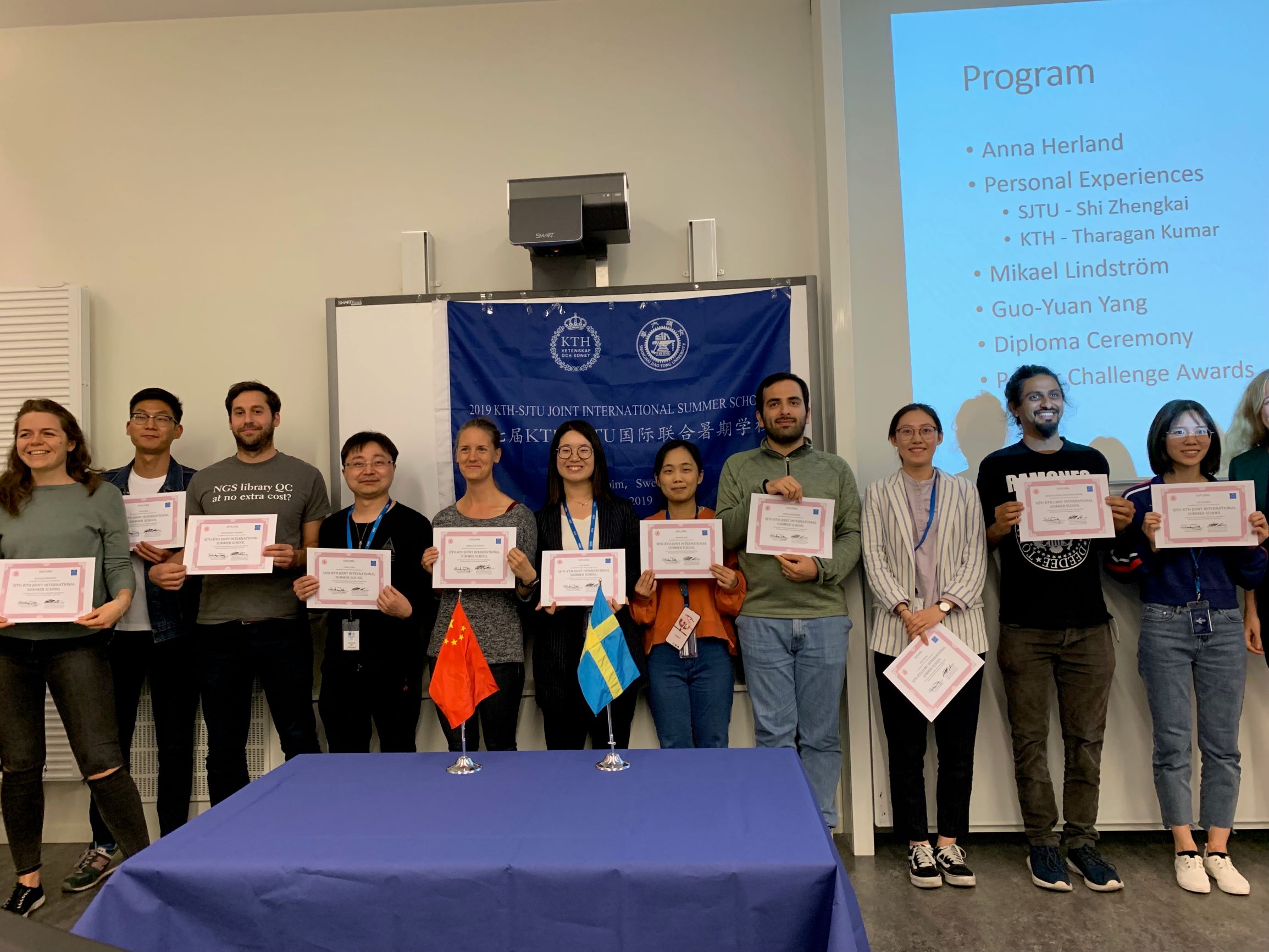
Collaboration
KTH is a member of the Swedish Chamber of Commerce in China, which has extensive operations in Shanghai. Of all the overseas Swedish chambers of commerce, the one in Shanghai has the highest number of registered companies.
2014 saw KTH and SJT establishing a Swedish Center at SJTU’s School of Biomedical Engineering and a Swedish Corner at the university’s public library. The Swedish Center gives KTH prominent visibility, and is currently supported by Sandvik and SCA. The centre has also received funding from Vinnova.
Swedish companies such as SKF and ABB are involved, financing a capstone project programme together with the School of Mechanical Engineering at SJTU and the School of Industrial Engineering and Management at KTH.
